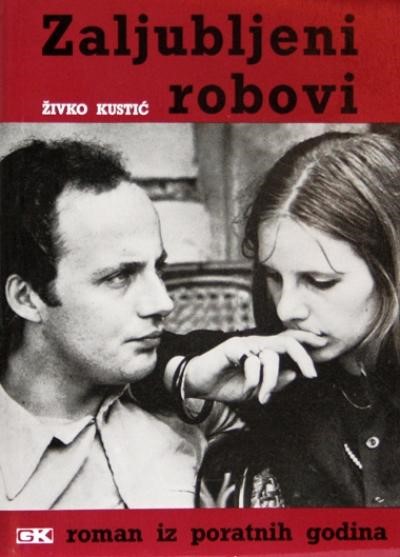The Živko Kustić Collection already began to emerge in his childhood, when he had already begun to write, because apart from journalism, Kustić was intensely involved with literature since his youngest days. According to his granddaughter, Lucija Mihaljević, a part of the collection was originally housed in the publishing house Glas Koncila, while his extensive library was saved in Kustić’s flat until his death. At present, both the library and collection itself are owned by his granddaughter. Kustić did not collect the materials with any special purpose, rather it was created on the basis of his intellectual and journalistic work as his working archive. The materials in the collection mostly pertain to religious themes, but also topics related to the Croatian national question under Yugoslav socialism. Some of his essays and articles, which are an integral part of the collection now, were banned by the Communist authorities. The collection has not yet been systematically curated, but is in the process of being created and therefore is not yet available to the general public.
Kustić was an important opposition figure prominent among Catholic circles as a Greek-Catholic priest, editor and journalist of the most important Catholic newspaper in socialist Croatia and Yugoslavia. He played a major role in launching Glas koncila, in which was later his chief-editor from 1972 to 1991. This newspaper was practically the only serious alternative to the regime media throughout Yugoslavia, which was demonstrated in the late 1960s and 1970s when it had a circulation between 150,000 and 200,000. Noteworthy in this regard is that Glas Koncila could not be sold through commercial and regular distribution channels alongside the socialist press because it was strictly banned by the authorities (Mikić 2016: 49-59).
Kustić, working together with the first editor Vladimir Pavlinić, wanted Glas koncila to cover more than just religious themes, as the editorial plan was to engage in commentary and analysis of socio-political events, which threatened the socialist regime in particular and violated its monopoly on the interpretation "socialist reality." Kustić's articles and Glas koncila itself were also read by non-Catholics and atheists throughout Croatia and other Yugoslav republics, because there could be a different and opposing opinion in the context of the dominance of socialist propaganda by the state-run media. In his essays and articles, Kustić's constant references to the freedom of religion, freedom of thought and freedom of the press in socialist Yugoslavia particularly disturbed the regime. In this regard, he stressed that faith could not be preached only within ecclesiastical institutions and living in pure privacy, rather it had to have a right to access to the public sphere. This prompted an outcry from the regime, which believed that religion would be overcome in a socialist society (Mikić 2016: 226 -232).
On the other hand, Kustić and his circle around Glas koncila emphasized the positive values of patriotism. This led to official condemnation for incitement of Croatian nationalism, the expression of national intolerance and threatening of brotherhood and unity, the ideological consensus on which the Yugoslav state was based under the Communist Party. Kustić was therefore placed on trial before the Supreme Court in Zagreb in 1972. The court ruled against him in 1975, when he was given a two-year suspended sentence and a one-year ban on writing for Glas Koncila. Kustić’s controversial was written at the time of his reporting on the autonomous province of Vojvodina in the late winter of 1972. He then wrote about the Croats as if they were in one republic and pointed out that Zagreb, Split, Sarajevo and Rijeka had been “the Croatian metropolises.” The regime interpreted this as a negation of the borders between the socialist republics of Croatia and Bosnia and Herzegovina. Kustić was therefore accused of "nationalist propaganda." The lawsuit was filed by the State Commission for Religious Affairs, which later notified the court in Zagreb to prosecute him (Mikić 2016: 450-445).

